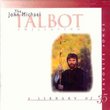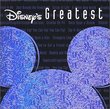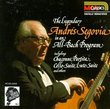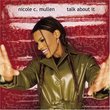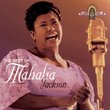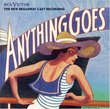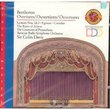| All Artists: Gunther Breitenbach Title: Trout Quintet / Death & The Maiden Members Wishing: 0 Total Copies: 0 Label: London Release Date: 10/25/1990 Genre: Classical Style: Chamber Music Number of Discs: 1 SwapaCD Credits: 1 UPC: 028941745927 |
Search - Gunther Breitenbach :: Trout Quintet / Death & The Maiden
CD DetailsSimilarly Requested CDs
|
CD ReviewsA "Trout" without much spice and a "Maiden's" Quartet, but Discophage | France | 08/17/2006 (2 out of 5 stars) "Besides the composer, these two recordings share 1st fiddler Willy Boskovsky, the reputed concertmaster of the Vienna Philharmonic back then, and have enjoyed near-universal critics' approval ever since they were published - in 1957 for the "Trout" quintet and 1963 for the quartet, then coupled with Schubert's 10th , so it was sensible of Decca to put them together - yet allow me to express the dissenting view here. First, the sound doesn't have much presence, especially when compared to the transfers Boston Skyline did for the Fine Arts quartet in the same coupling (Schubert: Trout Quintet/Death and the Maiden Quartet), or to the famous Rudolf Serkin and Marlboro's 1967 recording on Sony (Schubert: Piano Quintet "Trout"; Mozart: Clarinet Quintet). To be sure, there are great things in the Quintet. The 4th movement - the famous "Trout" variations - is one of them, thanks to the carefree mood and lively tempo adopted at the outset by Curzon and partners, which they sustain until the 5th and "slow" variation (but not in this one), giving a fine sense of coherence to the entire movement. The presto(3rd movement) is fast too and marvellously boisterous, but then the trio section slams the breaks and lapses into campy fussiness. And here lies the rub. In the opening "Allegro vivace", taken at a nice, lively tempo, Willy Boskovsky displays a slightly wailing violin tone, Nikolaus Hübner's cello tone is rather dry, and the Wiener don't do much of the accents Schubert has peppered the score with. If I may use this now politically incorrect metaphor, it is a "feminine" reading, as opposed to the more "virile" approach of Serkin or the Fine Arts: not the "boys getting together for a brawl", but "boys wooing the girl". The Andante is subdued, again the tone is a rather plaintive, and the Wiener don't do much of the fp markings that characterize that movement; but there are, I will grant, wonderful pianissimos throughout. The Finale adopts a leisurely, easy-going gait, with none of the exhilarating forward-motion that makes Serkin's recording irresistible. In "Death and the Maiden", the Wiener Philharmonic Quartet's first movement is metronomic and they are more attuned to the music's charm (the Maiden?) than to it's gripping tension (Death?): they (or the recording) simply do not produce much power. The theme with variations doesn't start well: Boskovsky is so set apart from the others as to sound like a concerto for violin and 3 strings, and the phrasing is earthbound, with none of the otherworldly pianissimos conjured by others - but then the variations unfold with good attention to the details of phrasing and articulation written by Schubert and with a commendable forward motion, very true to the "andante con moto" marking, to which the Wiener stick to the end, with the third variation (5:50) sounding like the lazy canter of a parading horse: there has been more gripping. Their Scherzo is not particularly brisk (Schubert writes "Allegro molto") but what weakens it even more is, again, a lack of power, and the trio section, taken at a slower tempo, exudes the usual mawkishness, with no trace of underlying agitation (the same rhythms as in the outer parts of the scherzo pervade this trio): if this Maiden is surrounded by Death she sure isn't aware of it ! The Finale also suffers the same lack of power. In sum, this is a "Maiden's' quartet, but I don't hear much Death. There are a number of similar couplings in direct competition with this disc, including the Amadeus Quartet's 1959 (and second) recording of the 14th Quartet with their 1976 recording of the "Trout" with Emil Gilels (Schubert: Trout Quintet, Death and the Maiden / Amadeus Quartet), Dame Moura Lympany's fine recording from 1974 unfortunately coupled with a mediocre reading of the quartet by the Gabrieli Quartet from 1971 on Classics for Pleasure (Trout Quintet/Death & The Maiden), and a good, traditional interpretation by the Fine Arts Quartet on Boston Skyline from the early 60s (see above - and I invite you to go to the items for longer reviews). " The legendary Vienna Octet Peter G. Watchorn | Cambridge, MA USA | 05/14/2007 (5 out of 5 stars) "Suffice it to say that these recordings are both classics of the recorded chamber music repertory. The Schubert Octet, the second version recorded by Willi Boskovsky's original Vienna Octet, is one of the great recordings of the octet, surpassed only by the ensemble's earlier mono recording (where more repeats were observed). It is full of life, and was a truly ground-breaking release back in 1957. Decca's recording still sounds wonderful - only a hint of hardness in the violin sound betrays its age. To some listeners the Vienna sound may be an acquired taste, but for me, the Vienna Octet recordings are of great importance both musically and historically. The ensemble achieves the light and dance-like sound that has always remained the essence of Viennese performance practice, unmatched in its essentials by similar chamber ensembles from German or England. The Vienna Octet was the original specialist chamber group of the post-war era, and it inspired imitators in Berlin, London and elsewhere. While the Viennese oboe sound is uniquely nasal (one hears it distinctly in every Viennese ensemble from the Vienna Philharmonic to Harnoncourt's Concentus Musicus with period instruments), the smooth, almost vibrato-less clarinet playing of Alfred Boskovsky (Willi's younger brother, and co-founder of the Octet) is incomparably beautiful. (Try to hear his two recorded versions of the Mozart Clarinet Quintet, one mono and the other a stereo remake from 1963 - two of the finest ever recorded).
The Vienna Octet's stereo re-makes of the Beethoven Septet, Schubert Octet and Schubert Trout Quintet are all among the greatest chamber music recordings made by Decca in the late 1950s. The stereo Mozart recordings (Divertimenti K. 205, 247, 251, 287, 334 and the Clarinet Quintet) all date from the 1960s, when the octet was led by another Philharmoniker violinist, Anton Fietz, whose style was more transparent and less Romantic than Willi Boskovsky's. These are some of the most remarkable of the Vienna Octet's many recordings and their light and articulate style forshadows that of later period instrument ensembles such as the Quatuor Mosaiques. It is rare to find the Vienna Octet's Mozart on CD (although it all deserves to be re-released), so admirers of Mozart's Divertimenti should acquire this release. There is another CD devoted to K. 247 and K.334, while the stereo version of the Mozart Clarinet Quintet (with Alfred Boskovsky and Anton Fietz) has been released, coupled with an equally great account of the Brahms Clarinet Quintet, with the same players. Despite some negative comments in another review, the Vienna Octet played to a very high technical standard indeed, as might be expected of front-desk players of the Vienna Philharmonic. Strongest recommendation. " |



